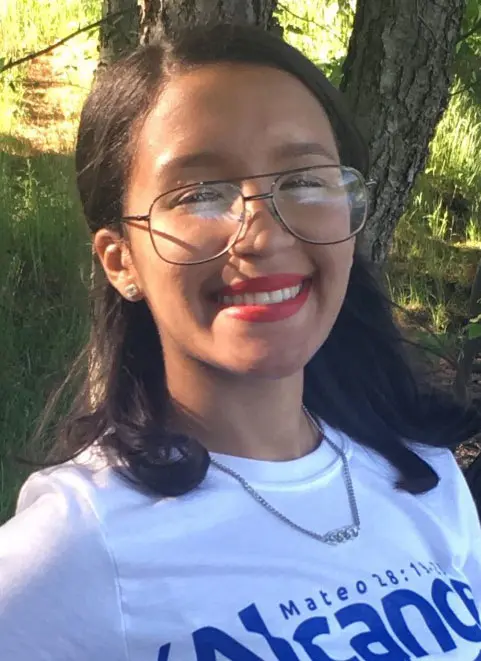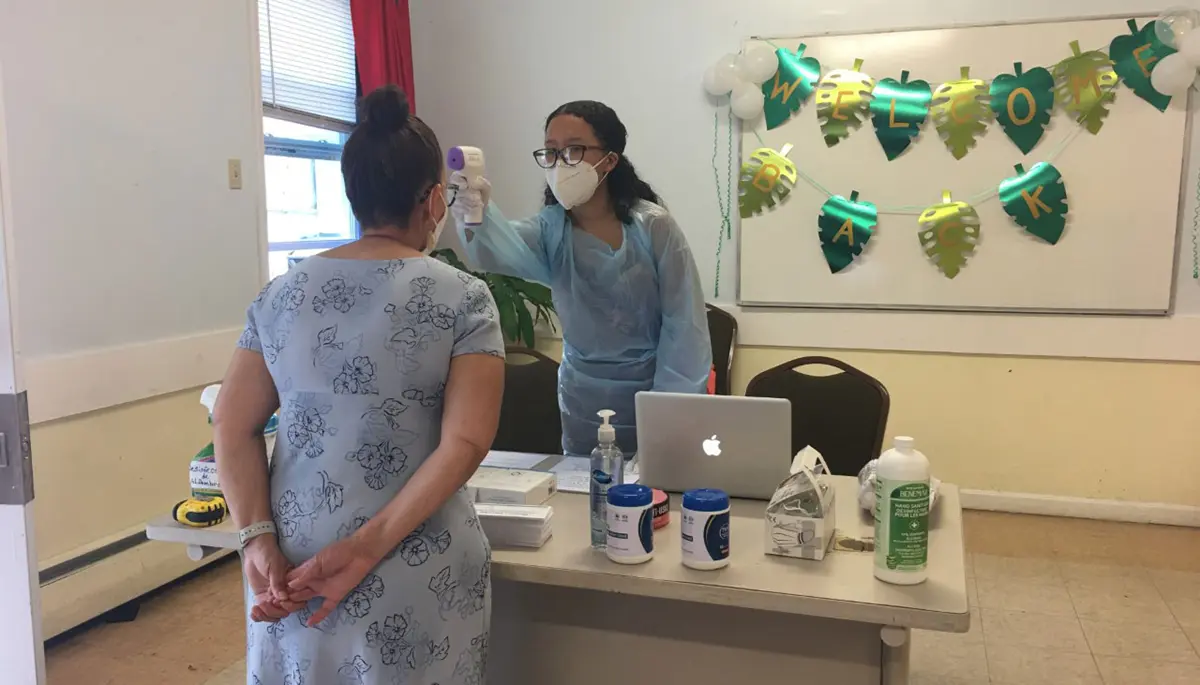Honors physics major and pre-med student Nazeli Acosta won a Gilman Scholarship from the U.S. State Department to study Spanish and rural health care in the Dominican Republic during the summer of 2020, one semester before graduating.
Acosta was especially looking forward to her practicum: working with the community health program in Santiago de los Caballeros run by Pontifical Catholic University Madre y Maestra.
However, due to the COVID-19 pandemic, all travel under the Gilman Scholarships was postponed until summer 2021.
“I’m looking forward to learning more about health centers in the Dominican Republic and making connections with health care workers in rural areas and public health officials,” Acosta says. She’s eager to learn about health care tools, taking family records and interacting with patients, too.
Acosta, who came to the United States with her family from rural Palmar and Altos de Piedra in the Dominican Republic at age 4, says the Gilman Scholarship is part of her plan to earn an M.D. and Ph.D., with a focus on pediatric neurology and clinical science, and return to the Dominican Republic someday to deliver good rural health care while also doing research.
“I want to engage with my country as a scholar and understand what’s going on,” she says. “There’s a lack of literature on health care in rural communities, especially for children.”
Acosta, who is a first-generation college student and dual citizen of the U.S. and the Dominican Republic, grew up in the Bronx. Her parents encouraged her education and helped her get a scholarship to study at a Catholic high school.
That’s where she first set her sights on college, thanks to a program run by Weill Cornell Medical College to introduce high school students to various health professions. Her younger brother, who, thanks to her growing awareness and advocacy, was eventually diagnosed with autism spectrum disorder and a learning disability, inspired her interest in pediatric neurobiology.
Right after Acosta graduated from high school, her family moved to Lawrence, Mass. Meanwhile, she had won a full scholarship to Providence College. While there, she completed a neuroscience internship at the University of Washington School of Medicine.
Working in the lab of the late Physics Prof. Stephen Mecca, designing a low-tech drinking water filter and going with him to Ghana for a community-based internship program had a profound effect on her academic and career plans.
"He encouraged me to use my education and training to serve places that need it the most," she says.
Halfway through her sophomore year at Providence College, though, she realized that her dream of combining physics and neuroscience would require her to triple-major in physics, biology and psychology, so she took a gap year to rethink her plans.
During that year, she did two internships that took her further on the path to understanding the role of physics and technology in medicine. One was at the Mayo Clinic in Rochester, Minn., making nanofibers to repair injuries caused by the insertion of stents into blocked blood vessels. The other was a research internship involving medical tubing at Nordson Medical in Salem, N.H.
And then, she decided to transfer to UMass Lowell, near her family’s new home. She started in biomedical engineering, but returned to physics after one semester because she wanted a solid foundation in a single area while completing her pre-med requirements.
“Physics appeals to my intellectual curiosity and learning for the sake of learning,” she says.
She continued to find internships, including a U.S. Department of Energy summer undergraduate laboratory internship in Stanford University’s PULSE Center, where she learned how to use X-ray crystallography to decode the structure of an enzyme – and met her future husband.
Acosta, who is in the Honors College, is doing her honors capstone research and thesis on how nanoparticles interact when they are in a medium similar to the human cell, with the goal of improving cancer radiotherapy. Her advisor is Prof. Erno Sajo, director of the Medical Physics Program.
An interdisciplinary honors seminar taught by Physics Prof. Robert Giles, Science and Technology in an Impoverished World, also left a lasting impression because it built on Acosta’s experience in Ghana.
“It was refreshing to learn about different initiatives that we can take as scientists, and it also deepened my cultural sensitivity,” she says. “We come from the United States and think we can go run things in other countries the way we do here – and that’s not the case.”


